While the 2004-05 NHL lockout was a necessary step for hockey and helped shape the league for today and the future, it has been overly unkind to the Philadelphia Flyers over the years. Actually, that might be an understatement.
Related: NHL’s 2004-05 Lockout Still Affecting League
The cancellation of the 2004-05 season was hard on everyone, including players, owners, arena staff, and all the fans. Even though it was a pretty big success when looking back on it, some teams might wish it never happened. The Flyers are not exempt from that.
Halting Flyers’ Momentum
Before the lockout of the 2004-05 season, the Flyers were coming off of a very deep playoff run that saw them lose in seven games to the eventual Stanley Cup champion Tampa Bay Lightning in the Eastern Conference Final.
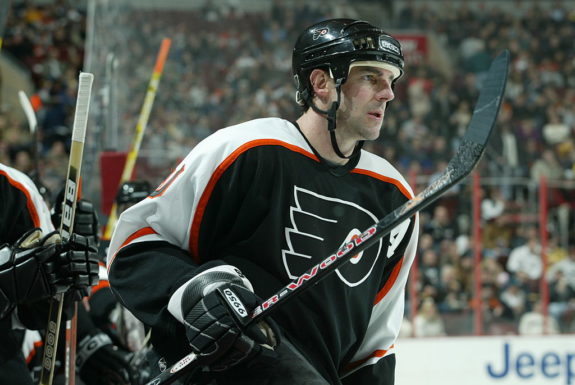
At that time, the Flyers had a pretty good trajectory. The team was potentially on the brink of an incredible run the very next season despite an aging core and the loss of Mark Recchi in the offseason. With youngsters with a future in the NHL like Jeff Carter, Mike Richards, Joni Pitkanen, and R.J. Umberger, the team had something to look forward to. That came crashing down after it became apparent that the 2004-05 season would not be played.
In the team’s 2005-06 campaign, they had a great record of 45-26-11 on paper, but were without their captain in Keith Primeau due to injury for all but nine games of the season. This led to an early retirement at the age of 34. After the Flyers lost to the Buffalo Sabres in the first round, they went on to have the worst record in team history the next season at 22-48-12. From their 1994-95 season through their 2011-12 campaign, this was the only time they had missed the playoffs in that span. As a result of a lockout that was out of their control, the team collapsed and was unable to recover.
2005 NHL Draft
Since the 2004-05 season could not be played out to determine who would win the right to draft young sensation Sidney Crosby with the first selection in the 2005 NHL Draft, a system was put in place to determine the odds for the draft lottery.

The procedure for determining the odds was based on how many times each team made a trip to the postseason in the previous three seasons. With the Pittsburgh Penguins having none, they were in the mix to land Crosby.
By some luck, the Penguins were the team to land one of the best prospects the NHL has ever seen. If that wasn’t enough, they stole Kris Letang with the first pick in the third round in the same draft.
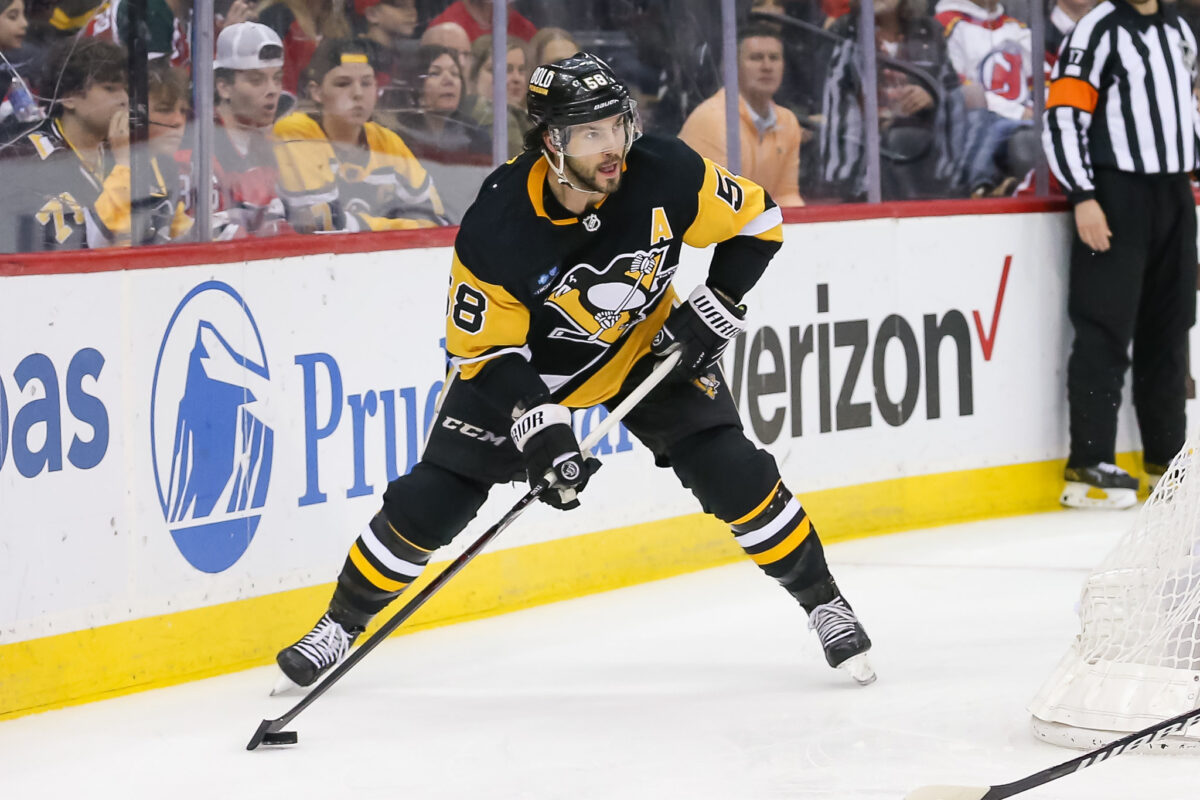
The Penguins, specifically Crosby, would dominate against the Flyers for years to come. Before the start of the 2023-24 NHL season, he is tied for first place among players with the most points against the club in its history with 124 in just 83 games. Additionally, he stands as the all-time goals leader against the Orange and Black with 53 total.
Related: Philadelphia Flyers’ History with the Pittsburgh Penguins
Crosby and Letang have helped bring three Stanley Cup championships to the city of Pittsburgh in their time playing for the team. The Flyers and Penguins have been fierce rivals since the arrival of the two players, and it appears as though Philadelphia has probably been on the losing end of it.
Introduction of the Shootout
One of the more exciting rule changes that resulted from the 2004-05 season was the elimination of ties and the introduction of the shootout. The back-and-forth competition has hurt the Flyers more than any other team since its implementation.
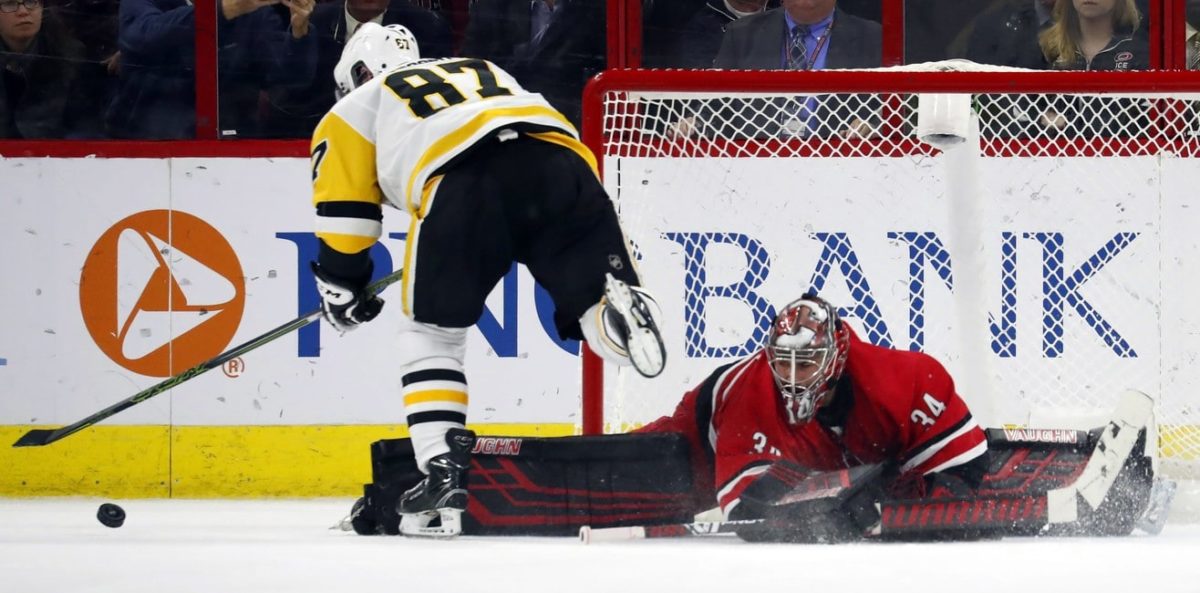
Out of every single team in the NHL, none of them have struggled in the shootout more than the Flyers. Not even the Seattle Kraken, with just two seasons under their belt and a 3-5 record in the competition, can best Philadelphia. The Flyers’ 56-97 record is by far the worst among teams with a significant sample size. Winning under 37 percent of games going past the five-minute overtime period, the Flyers probably wish that games would remain tied if no goals were scored past regulation.
However, there is light at the end of the tunnel. One of the most incredible moments in Flyers’ history was decided in the shootout, where they needed the win over their rival New York Rangers in the final game of the season in order to advance to the playoffs in 2009-10. That they did, and had one of the best underdog stories in sports before they were bested in the Stanley Cup Final by the Chicago Blackhawks.
Well, Philadelphia would have made the playoffs even if the shootout didn’t exist. The Flyers and Montreal Canadiens clinched the last two spots in the playoffs with 88 points, while the Rangers missed out with just 87. If the 2003-04 points system was reinstated but with all shootouts turning into a single point to represent a tie, the Flyers would still advance to the postseason, given the Canadiens had the best record in the shootout of the three teams. Yes, this would have altered who the Flyers played and potentially have them lose in the first round. It is also true that the whole league changes depending on where Crosby lands, so all logic goes out the window at this point.
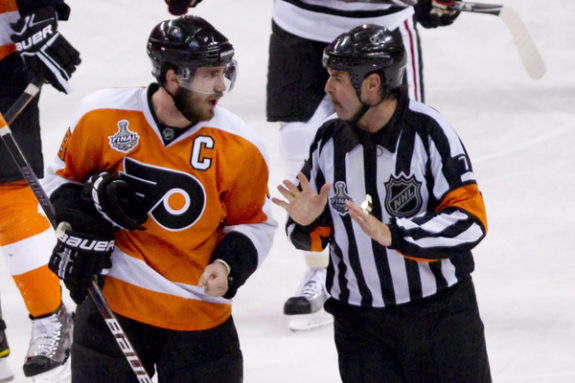
With the complexities of this alternate reality aside, the Flyers have been consistently dreadful in the shootout for years. It got to its worst point in 2014-15 where the team went 3-11 in games that could not be settled in overtime. The shootout has been a consistent issue for Philadelphia, and it has not gotten better in recent years.
Implementing the Salary Cap
In what was probably the most significant change of the lockout, the NHL introduced a salary cap that would limit how much teams could spend on their roster. Being one of the bigger market teams, the Flyers were one of the losers of this decision.
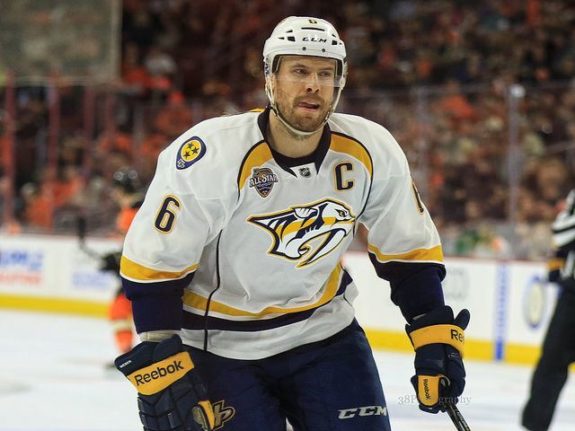
It really isn’t possible to gauge where the Flyers would be if teams had unlimited spending power. One thing we can do is go over the team’s offer sheet of star defenseman Shea Weber following the 2011-12 season, and how they might have landed him if there wasn’t a hard cap.
After losing captain Chris Pronger due to an eye injury in the regular season that year, they weren’t exactly a force defensively. Ranking 21st in goals-against that season, the Flyers needed to make a move to replace this loss. They attempted to by giving Weber a contract worth $110 million in total value over the course of 14 seasons.
Nashville wasn’t quite a staple in the hockey world back then like they are today. In a different world with no salary cap, there could have been a possibility for Weber to go to the Flyers, while the Predators refuse to match their offer. Going on to receive Norris Trophy votes in six seasons on the contract, the Flyers probably wish they were able to land him, especially considering what the picks they would have given up ended up becoming.
For some reason, the Flyers seem to be the biggest losers in virtually every facet of what made the 2004-05 lockout a success.
